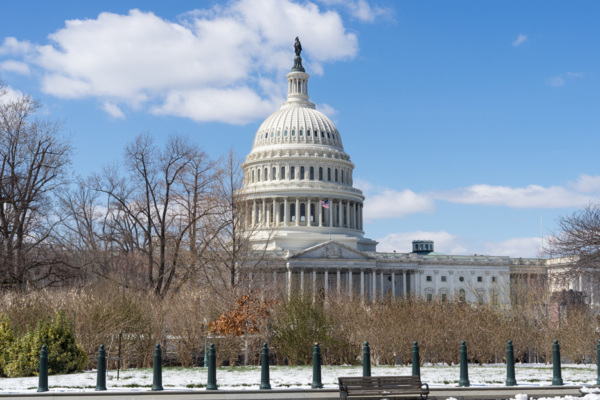Congressional leadership have reached a deal on a COVID relief package as well as an omnibus Fiscal Year 2021 spending bill. Actual legislative language for the approximately $2 trillion bill, which will likely run thousands of pages, has not been released yet but will nonetheless be voted on in the next few days.
The legislation includes many provisions that will have meaningful impacts, either directly or indirectly, on the travel center industry. Below is a short overview of these provisions, with additional insights and analysis coming in the days ahead as we continue to review the legislation.
Liability Protection
Although there were various disagreements that had to be hashed out over the past few days, it is anticipated that congressional leadership ultimately decided to punt on both COVID-related liability protection for businesses as well as money for state and local governments.
Sen. Majority Leader Mitch McConnell (R-KY) had repeatedly declared that he would not pass a bill without liability protection. However, a bipartisan group of moderate senators in recent weeks fundamentally changed senate dynamics by making clear that they strongly favored additional aid, even if it was not attached to liability protection. This diminished Sen. McConnell's negotiating leverage.
Sen. McConnell recognizes that there will be ample opportunity once the Biden Administration assumes office for liability protection to be included in stimulus or other legislation.
Unemployment Insurance/Direct Payments to Individuals
The measure is expected to include:
A Federal Unemployment Insurance supplement of $300 per week for all workers receiving unemployment benefit that would expire on March 14, 2021. The original CARES Act included a $600 per week supplement.
The bill also could:
- Extend until March 14 long-term unemployment insurance, allowing individuals to receive unemployment benefits for up to 50 weeks.
- Direct payments to individuals of $600 for individuals making up to $75,000 per year (phased down up to $99,000 per year) and $1,200 for couples making up to $150,000 per year, as well as a $600 payment for each child dependent.
Paycheck Protection Program (PPP)
$284 billion for the Paycheck Protection Program (PPP) ($12 Billion earmarked for minority-owned businesses, $15 billion for live venues, independent movie theaters and cultural institutions).
- Businesses seeking a second PPP loan will need to demonstrate that they have fewer than 300 employees and have suffered at least a 25 percent reduction in revenue year-on-year. Maximum loan amount of $2 million. The bill also creates a simplified one-page loan forgiveness application for loans under $150,000.
- Businesses that have received Paycheck Protection Program (PPP) loans and had them forgiven will be allowed to deduct the costs covered by those loans on their federal tax returns so long as the loan recipient can show a loss in revenue in 2020 compared with prior years. It remains unclear if there will be any additional guardrails or restrictions around this provision.
Miscellaneous Provisions Expected in the Bill Include:
- Transportation funding, including:
- $10 billion for state highways; $14 billion for transit.
- $15 billion for airline payroll support
- 15 percent increase in SNAP benefits.
- Extend for one month a moratorium on evictions that was set to expire at the end of the year.
- A measure protecting patients from "surprise" medical bills when patients receive care from a provider outside their health plan's network (often surrounding emergency care).
- Under this provision, doctors and hospitals may no longer charge patients the extra out-of-network costs not covered by their insurance plan. Instead, a third-party arbiter would decide the payment for these bills.
Subscribe to Updates
NATSO provides a breadth of information created to strengthen travel plazas’ ability to meet the needs of the travelling public in an age of disruption. This includes knowledge filled blog posts, articles and publications. If you would like to receive a digest of blog post and articles directly in your inbox, please provide your name, email and the frequency of the updates you want to receive the email digest.

